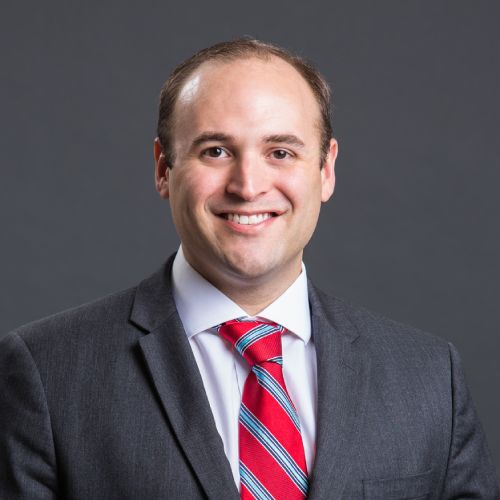Patients trust healthcare providers to offer safe and effective care when undergoing medical treatment. Unfortunately, mistakes can happen, and these errors can sometimes lead to serious harm. Understanding common medical malpractice claims is essential for anyone who thinks they might be a victim of malpractice. From misdiagnosis to surgical errors, these claims highlight the types of negligence in medical settings, potentially leading to legal action if you or a loved one has been affected.
Misdiagnosis
Misdiagnosis is one of the most common medical malpractice claims. It happens when a doctor incorrectly diagnoses a condition, leading to delayed or improper treatment. A misdiagnosis might occur with conditions that have symptoms similar to other illnesses.
Commonly misdiagnosed conditions include life-threatening conditions and diseases like cancer, heart attacks, and strokes. For example, a patient might go to the emergency room with chest pain, and the doctor mistakenly attributes it to indigestion instead of recognizing it as a heart attack. This error can have devastating consequences, as the patient might not receive the correct treatment in time.
The impact of misdiagnosis can be severe, resulting in the patient’s condition worsening or even becoming life-threatening. In these cases, the patient or their family may have grounds to file a medical malpractice claim, seeking compensation for the harm caused by the delayed or incorrect diagnosis.
Surgical Errors
Surgical errors are another leading cause of common medical malpractice claims. These mistakes can happen during surgery and have serious, sometimes life-threatening, consequences. Surgical errors can include operating on the wrong body part, leaving surgical instruments inside a patient, or performing the wrong procedure altogether.
For instance, imagine a scenario where a surgeon is supposed to operate on the left knee but mistakenly operates on the right knee instead. Not only does the patient go through unnecessary surgery, but the original issue remains untreated. Another example could be a surgeon leaving a sponge or tool inside a patient’s body, leading to infections or further complications that require additional surgeries to correct.
The aftermath of a surgical error can be overwhelming, both physically and emotionally. Patients often face extended recovery times, additional medical bills, and a loss of trust in their healthcare providers. When these errors occur, patients have the right to seek legal recourse to hold the responsible parties accountable and to recover compensation for their suffering.
Medication Errors
A medication error is another one of the most common medical malpractice claims that can have severe consequences for patients. These errors occur when patients are given the wrong medication, an incorrect dosage, or a drug they are allergic to. Medication errors can lead to harmful side effects or worsen a patient’s condition.
Medication errors can happen in various ways. For example, a doctor might prescribe the wrong medication due to a misdiagnosis, or a nurse might administer an incorrect dose of the medication in a hospital setting. Sometimes, these mistakes occur because of unclear handwriting on prescriptions, leading to the pharmacy dispensing the wrong drug.
The consequences of medication mistakes can be severe. A patient might suffer from adverse reactions, experience a delay in proper treatment, or face life-threatening complications. In cases where a medication error leads to significant harm, patients or their families may file a medical malpractice claim to seek compensation for the damages they’ve suffered.
Failure to Treat
Failure to treat occurs when a healthcare provider correctly diagnoses a condition but fails to provide the necessary treatment promptly. This type of medical negligence is hazardous because, while the diagnosis is accurate, the lack of appropriate treatment can cause the patient’s condition to worsen.
Common scenarios of failure to treat include situations where a doctor dismisses symptoms as not urgent or decides not to follow a standard course of treatment. For instance, if a patient is diagnosed with an infection requiring antibiotics, the doctor fails to prescribe them. The infection could spread and become much more severe.
Failure to treat is a serious issue because it often leaves patients feeling helpless—they know something is wrong, but their medical care is insufficient. When this happens, patients may have grounds to file a claim to seek justice and compensation.
Other Common Medical Malpractice Claims
While misdiagnosis, surgical errors, medication mistakes, and failure to treat are among the most common types of medical malpractice claims, other significant errors can also lead to serious harm. Two examples are birth injuries and anesthesia errors.
Birth Injuries
Birth injuries occur when medical negligence during childbirth leads to harm to the mother, the baby, or both. These injuries can result from improper use of forceps, failure to monitor the baby’s vital signs, or delays in performing a necessary C-section. The consequences can be life-altering, leading to conditions like cerebral palsy or other long-term disabilities.
Anesthesia Errors
Anesthesia errors happen when an anesthesiologist administers too much or too little anesthesia or fails to monitor the patient properly during surgery. These mistakes can lead to severe complications, including brain damage, nerve injuries, or even death. Because anesthesia involves putting patients into a vulnerable state, the margin for error is very small, making these claims particularly serious.
Contact James Horne Law PA
If you believe you or a loved one has been the victim of any of these common medical types of medical malpractice, seek legal advice as soon as possible. At James Horne Law PA, we understand medical negligence’s devastating impact on your life. Don’t hesitate to reach out to us for legal assistance.
With our commitment to keeping you informed every step of the way and our “no fees unless we win” policy, you can trust that your case is in good hands. Contact us today to discuss your legal options and get the support you need to pursue justice.


